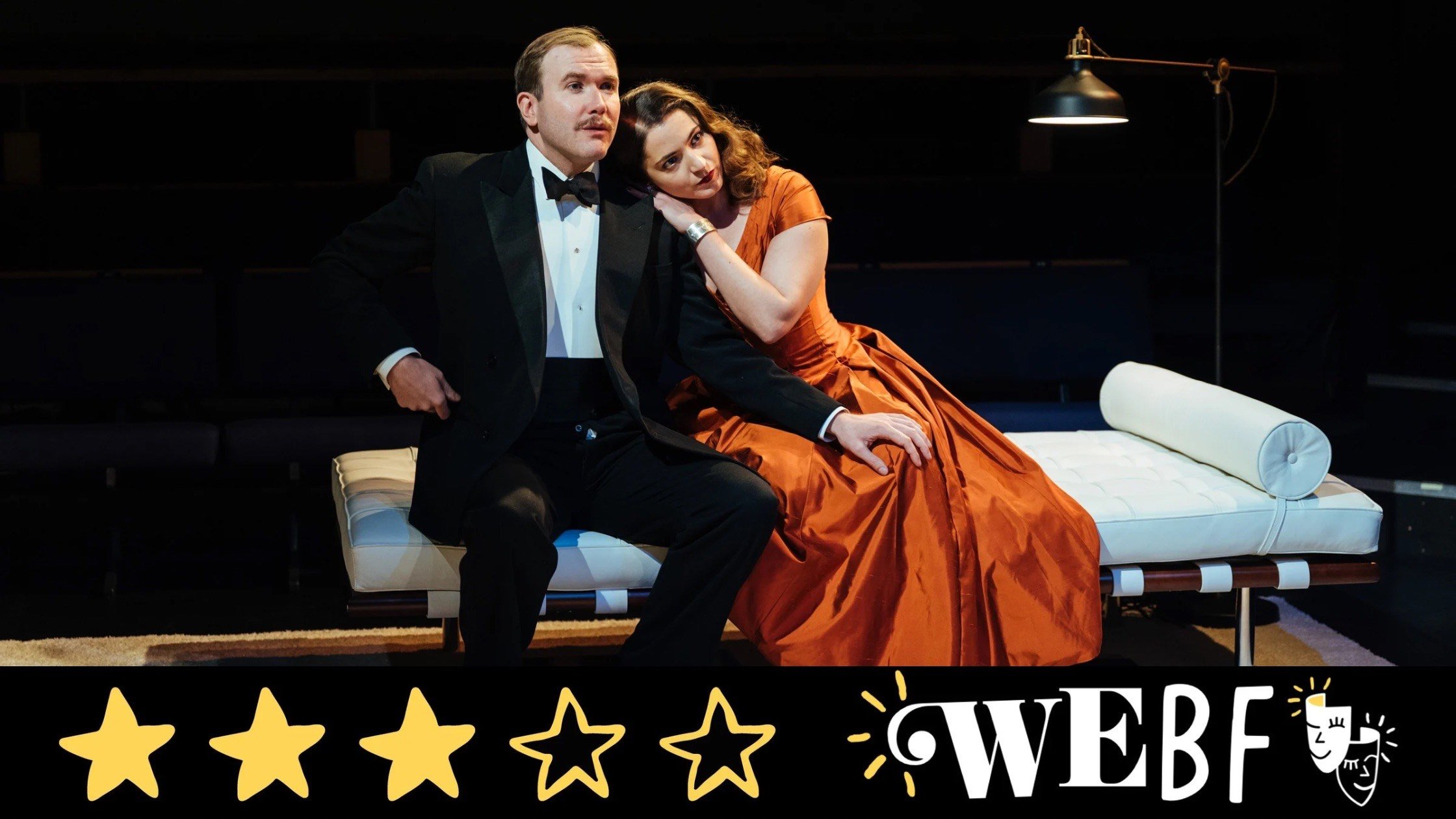Review: HEDDA, Orange Tree Theatre
Photo credit: Helen Murray
In Hedda, her version of Ibsen’s Hedda Gabler, Tanika Gupta changes the location to Chelsea in 1948, in the aftermath of WWII and Indian independence. She recasts Hedda as a film star with a secret, her Anglo-Indian parentage: a major hurdle when the Hays Code was in place. She is married to a film director, George Tesman. Judge Brack becomes John Brack, a producer, and Aunt Julia also features as in the original. Other names are changed but the characters trapped in their dull middle-class life remain: the young writer, Leonard here, and his partner Alice, and the servant Shona.
In many ways, the creation of the servant as an ayah who brought up Hedda, and who we find was in fact her mother, is the most successful change in this version. Her involvement, sometimes in a sudden orange sunlight, adds a vivid reminder of the Indian background of many of the characters, and thanks to another fine and yet appropriately restrained performance from Rina Fatania, we totally believe in her. Sound designer Poya Ehsaei adds much to these sections too.
The setting is interesting too (Simon Kenny), with the 1940s Chelsea flat furnished in sterile white leather and chrome, with a day bed and stool reminding us of the wooden equivalents outside Indian houses. The only other item is a wood stove, a plot necessity of course but also perhaps a reminder of the Nordic origins of the play.
Leonard has written a new play, and it is about an Anglo-Indian character. Everyone thinks Hedda should play the part, apart from those who are aware she is far more qualified to do so than is generally known. Much of the plot survives, as do some of the lines, and the drunken party, the lost script, and its burning by Hedda all feature. Caroline Harker convinces as Aunt Julia, apparently unaware at first of what is happening, but actually more perceptive than we think. She also looks and sounds like a woman from the 1940s.
Other performances are less successful at navigating the rather stilted and occasionally banal script. Joe Bannister is a suave George Tesman, and contrasts well with Jake Mann’s less rigid Leonard. Bebe Cave is a determined Alice, and Milo Twomey makes as much as he can of Brack, coming into his own in his final duologue with Hedda.
In the title role, Pearl Chanda is a touching and complex Hedda, never less than watchable but sometimes struggling too to put life into the lines she has been given. Although, she does portray well the increased agency given to her in this version, especially in the final moments where Gupta makes a major change to the original plot. If the intention is to increase the agency wielded by Hedda, it is puzzling that Gupta chooses just Hedda as the title; Ibsen chose to call the play Hedda Gabler rather than Hedda Tesman in order to underline her role as her own woman.
Gupta’s adaptation (credited as “inspired by”) raises interesting issues and the transposition is effective at raising many of the same issues that are considered in the original. Unfortunately, the dialogue does not convince as the words of real people, for the most part, and Hettie Macdonald’s production only partly overcomes this.
Hedda remains a watchable and engrossing play with some good performances, and those who enjoy Ibsen will also find this a fascinating transposition.
*** Three stars
Reviewed by: Chris Abbott
Hedda plays at London’s Orange Tree Theatre until 22 November, with further info here.


